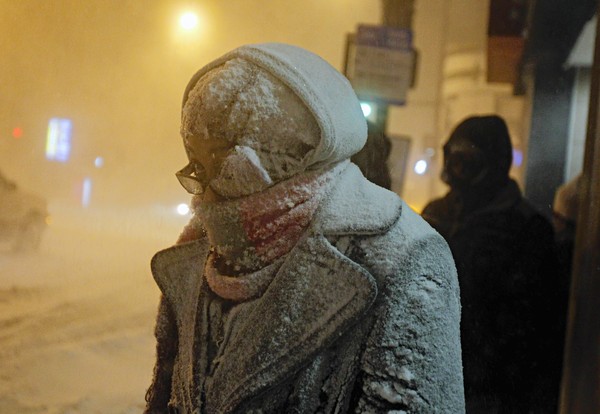Archives for February 2011
From the San Francisco Chronicle today:
 Colorado state house Republicans and Democrats teamed up with big labor, big business, and other special interests against Colorado citizens to pass SCR-1 by a vote of 55-12 early this morning. The constitutional amendment, if approved by voters, would turn the current deep freeze that has overtaken the state’s petition process into an ice age.
Colorado state house Republicans and Democrats teamed up with big labor, big business, and other special interests against Colorado citizens to pass SCR-1 by a vote of 55-12 early this morning. The constitutional amendment, if approved by voters, would turn the current deep freeze that has overtaken the state’s petition process into an ice age.
 With a constitutional amendment that would make it far more difficult to enact future constitutional amendments – especially through Colorado’s citizen initiative process – already passed by the State Senate and now pending on the floor of the House of Representatives, Citizens in Charge Foundation, a national voter rights group (and a partner organization to Citizens in Charge), today issued a report entitled, “Five Facts about Amending Colorado’s Constitution.”
With a constitutional amendment that would make it far more difficult to enact future constitutional amendments – especially through Colorado’s citizen initiative process – already passed by the State Senate and now pending on the floor of the House of Representatives, Citizens in Charge Foundation, a national voter rights group (and a partner organization to Citizens in Charge), today issued a report entitled, “Five Facts about Amending Colorado’s Constitution.”
City officials and activists can’t seem to agree on the rules governing a move to recall the elected officials who voted for a $2.50-a-week user fee in Parkersburg. The city claims the deadline to submit petitons passed last week while supporters of the recall effort don’t believe the law contains a deadline:
City Attorney Joe Santer insisted Parkersburg’s charter stipulates that groups seeking to exercise the recall option have 30 days after declaring their intent to do so to gather the necessary signatures. He said the 30-day recall window expired Feb. 14.
National group U.S. Term Limits has joined the broad coalition of voices denouncing the Colorado General Assembly’s special interest-fueled attack on citizen initiative rights. From a statement released yesterday:
Yesterday, Citizens in Charge, joined by the Humane Society of the United States and the National Taxpayers Union, filed a friend of the court brief in the case, Michael Ni v. Warren Slocum, Chief Elections Officer of San Mateo County, asking the California Court of Appeal to reverse a lower court’s decision and hold that Michael Ni’s electronic signature on a 2010 petition was legally proper and, likewise, that electronic signatures gathered in accordance with the requirements of California law should be accepted as valid for initiative and referendum petitions. 
On February 19, Judge David R. Thompson died at the age of 80. He was a semi-retired judge on the U.S. 9th Circuit Court of Appeals. He was based in San Diego. He had been appointed to the 9th circuit in 1985. In 2000 he wrote the decision that invalidated a Washington state law that required the names and addresses of paid circulators to be made public, by their employers, on a monthly basis. That case was called WIN v Rippie. His decision said,
Rosebud Sioux Tribe members are currently circulating a recall petition against tribal President Rodney Bordeaux, citing mismanagement of tribal affairs. While Bordeaux defends himself, the Rapid City Journal reports that tribal officials are hampering signature collection efforts:
The Seattle Times speaks bluntly about a pair of bills aimed at restricting Washington citizens’ initiative rights.
Their bills…are a collection of things to make ballot initiatives more difficult. And that suggests the legislators’ intent is to restrict direct democracy….
They are punitive and should be rejected.

Former University of Colorado, Boulder Senior Instructor Emeritus professor of in political science and initiative rights activist Thaddeus Tecza writes in a letter to the Denver Post:
Following Missouri state Senator Jolie Justus’ mis-Tweet about her proposal to severely burden anyone attempting to use the citizen initiative process comes more criticism; this time from a leading policy voice in the state. Analyst Audrey Spalding of the Show-Me Institute writes in the Missouri Record that:
Justus’ proposal will make it at least 50 percent harder (and that much more expensive) for Missourians to bring an issue to statewide voters…Why would Justus want to restrict this process further, so that only the most wealthy individuals and groups can participate?
The state of Washington has an active state-wide initiative process, so naturally elected officials in the state want to do everything they can to put a stop to it: